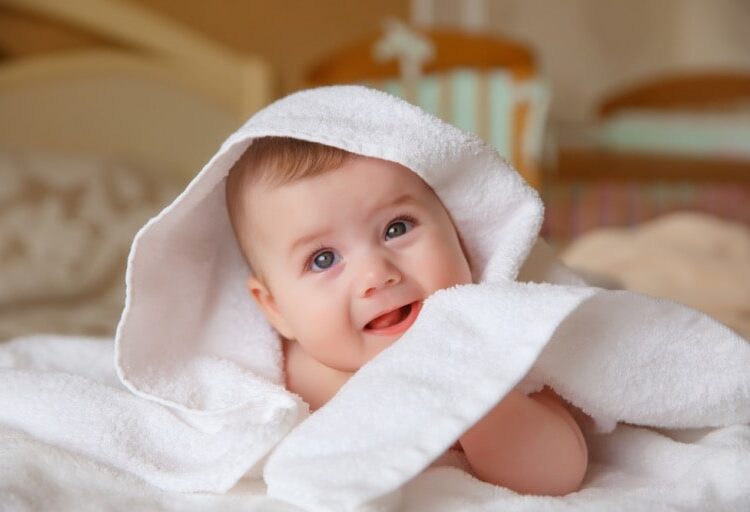Sterilizing baby products such as bottles, nipples, and pacifiers is essential to maintaining a safe and hygienic environment for babies. Due to their developing immune systems, babies are more vulnerable to infections and germs, making sterilization a crucial step in preventing illness. Parents can create a safer feeding environment by regularly sterilizing items that come in contact with the baby’s mouth. Here’s a closer look at why sterilization is so important for baby products.
Reducing Exposure to Harmful Bacteria
Babies have sensitive immune systems that are still in the process of developing. Any exposure to bacteria from feeding products can lead to infections and stomach discomfort. For parents who are looking for the best baby bottles for sensitive tummies, Dr. Talbot’s baby bottles are designed to be easily sterilized, helping to keep harmful bacteria away. Sterilizing helps reduce the presence of germs, ensuring that the baby’s feeding items are safe for use each time.
Preventing Digestive Issues
Babies, especially those with sensitive digestive systems, are at a higher risk of developing digestive issues from bacteria that can accumulate on bottles and pacifiers. Even after washing, residue from milk or formula left on bottles can become a breeding ground for bacteria. Regular sterilization prevents the buildup of these germs, which can reduce the risk of digestive discomfort and other related issues in babies.
Supporting Immune System Health
Because babies’ immune systems are not fully developed, they are more likely to get sick when exposed to germs. Sterilizing feeding products reduces their exposure to bacteria and viruses that their immune systems aren’t yet able to fight. For babies, even minor infections can be a significant health concern, and proper sterilization is a simple but effective way to protect their health by supporting their body’s natural defenses.
Eliminating Residues from Formula or Breast Milk
Milk and formula can leave behind residues on bottles and nipples even after washing. These residues can lead to bacterial growth if not thoroughly cleaned. Sterilization eliminates these residues, ensuring each feeding starts with a completely clean bottle. This process not only reduces the risk of contamination but also helps maintain the quality and freshness of the milk or formula, keeping it safe for babies to consume.
Milk and formula residues can cause bacterial growth and contribute to unpleasant odors and tastes that might make feeding uncomfortable for the baby. Over time, these residues can form a thin layer inside the bottle, which may be difficult to see but can impact hygiene. Sterilization reaches areas that simple washing might miss, removing even microscopic traces of milk.
Protecting Against Recurrent Illnesses
In some cases, babies who frequently get sick may be exposed to germs from unsterilized feeding items. Regularly sterilizing bottles and other products can prevent the spread of germs that may be causing recurrent illnesses. Keeping these items free of bacteria and viruses is especially important during cold and flu season when babies are more likely to encounter germs from multiple sources. Proper sterilization practices can help reduce the likelihood of recurring sickness.
Improving Overall Hygiene in Baby Care
Maintaining a clean and hygienic environment is essential for baby care, and sterilization of feeding products plays a major role. When parents make sterilization a regular practice, they contribute to the overall cleanliness and safety of the baby’s environment. This habit reinforces good hygiene, promoting a healthy lifestyle and setting the foundation for safe feeding practices as the baby grows.
Creating a Routine of Cleanliness
Parents can establish a sense of order and cleanliness in their baby care practices by incorporating sterilization into their daily or weekly routines. This routine can be especially useful for busy parents, as it ensures that all feeding products are prepared and ready for each use. Once sterilization becomes a habit, it feels less time-consuming and becomes a natural part of caring for the baby’s health and safety.
Providing Peace of Mind for Parents
Sterilization gives parents peace of mind, knowing they are taking extra steps to protect their baby’s health. Many parents worry about germs and bacteria, especially during the baby’s first months. By consistently sterilizing feeding items, parents can feel confident that they are reducing any risks associated with feeding. This sense of security allows parents to focus on enjoying their time with the baby, knowing that they are taking all necessary precautions for their well-being.
Sterilization is an essential practice for baby care that safeguards the baby’s health by preventing exposure to bacteria, supporting digestive health, and creating a clean feeding environment. Regularly sterilizing baby products provides parents with peace of mind and contributes to the baby’s overall well-being. Through simple, effective sterilization methods, parents can ensure that each feeding is safe, clean, and healthy for their little one.




